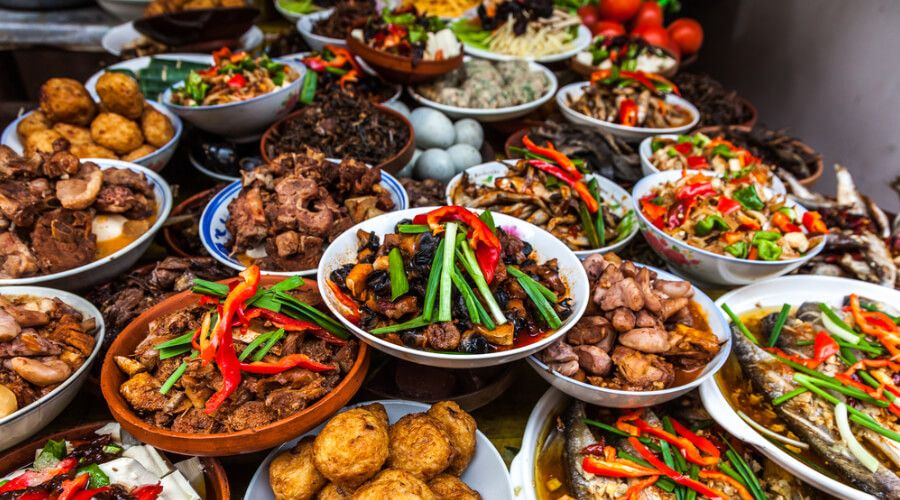Barakah: fighting food waste one surplus meal at a time

The Middle East has one of the highest food wastage rates in the world. This wastage occurs at every stage of the food chain cycle, from fruits and vegetables that are discarded on the farm for being inadequate to leftover meals that go uneaten. No matter when it happens, food waste poses significant economic, environmental, and nutritional challenges. Several startups have emerged across the Middle East and North Africa to tackle this problem, each with their own concept of fighting food waste and among them is Saudi Arabia-based Barakah, which helps restaurants sell their excess meals.
“I think the idea of Barakah was born right in front of our eyes when I and my fellow co-founder were at a restaurant and closely observed the commercial food waste,” says Rabah Habiss, co-founder of Barakah.“The economic toll of food waste is huge. So in Saudi Arabia, food waste represents one-third of the solid waste and is estimated to be at SAR 40 billion,” he adds.
To put this into a broader context, Habiss explains that the problem lies in the inability to match surplus meals or food products with the right customer at the right time. Together with Munira Almuammar and Abdulaziz Al Saud, Habiss came up with the Barakah platform to help food retailers enhance their resource efficiency by addressing the issue of food waste, which typically amounts to 10–20 percent of their daily produce.
The idea of Barakah was largely inspired by the success story of UK-based Too Good to Go, which operates a similar business model and is now present in several cities across Europe. After multiple iterations, Barakah launched its platform in 2022, connecting restaurants and food retailers to consumers, enabling the latter to purchase surplus meals and other reusable food products at half the original price before they go to waste.
So far, the products listed on the Barakah app are primarily sourced from restaurants, cafes, desserts, bakeries, and grocery stores.
Changing the perception that surplus food is not leftover food has been their biggest challenge, and so has the process of onboarding early adopters from merchants.
“To address that, we made them raise awareness about the issue through social media and make the app exciting and easy to use,” Habiss explains.
Cost-conscious customers
Barakah’s unique selling point (USP) lies in its ability to address religious considerations in terms of food waste reduction and the needs of increasingly cost-conscious customers, who make up a significant chunk of its user base. The startup’s pricing model does not involve markups and only offers discounts.
“Users did not at first see our solution as a means to address the adverse implications of the food waste issues. But having our value proposition speak to the users’ religious and cultural views around food waste while reducing costs for customers and retailers has resonated very strongly, taking into consideration the increase in living expenses and the fact that now everyone is after discounted products. As a result of this, we managed to build a community where people are now the ones who promote us, 70 per cent of our users are acquired organically,” Habiss adds.
Unlike other food ordering apps, curbside pickup constitutes the majority of its transactions, amounting to 88 per cent. Habiss chalked this up to the fact that the users are becoming more inclined to save on delivery fees as well.
The Barakah app also utilises an interactive map to help users locate the available meals at nearby stores.
Scalability
The startup has also witnessed substantial demand for delivery, but to minimise the impact of the logistical hurdles that come with delivery and make it economically viable for it and its customers, it introduced its service where orders are grouped together, with fees split among customers, leveraging its third-party partners.
This falls under a service called “Barakah Bags”, where users can reserve surplus meals once they are available on the app. This model has gone through multiple hits and misses.
Food surplus cannot always be available to users instantly, so the startup struggled with supply continuity in the first phases of the rollout of its on-demand delivery service.
“Our on-demand service involves asking merchants to list the items available themselves on the dashboard, and the customer will be notified, but this proved to be challenging to us on every front because we had to go after them to make sure that they actually do that. That created a scalability challenge,” he further illustrates.
“We had to reverse the process. So, we made a mutual agreement with the vendors regarding the daily quantity of surplus bags they can offer for sale. They can now simply wait for customers to purchase the items during the reserved time slots.”
To foster partnerships and crack into additional verticals across the F&B industry, Barakah raised a $1.5 million Seed round earlier in September. Barakah currently works with merchants across Jeddah and Riyadh, having amassed around 180,000 registered users.
“A big part of the funds goes to business development. We are getting requests from users across other cities that we are not in. Now that there’s a demand, we have to create the supply,” Habiss concludes.


